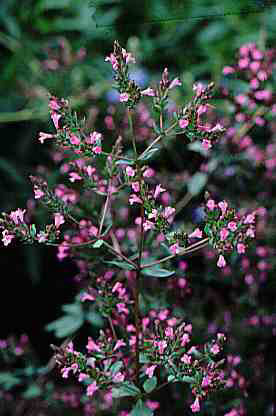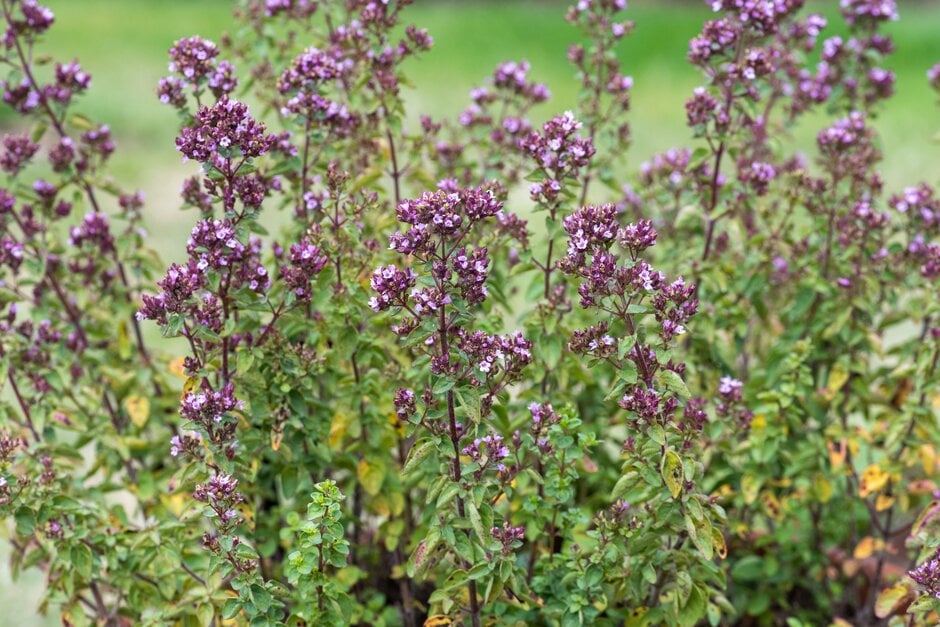Origanum laevigatum
smooth oregano
A woody-based perennial making a loose clump of stems with ovate, blue-green, aromatic leaves 1-2cm in length. Tubular rosy-pink flowers 15mm in length are borne in clusters among purplish bracts from spring to autumn
Size
Ultimate height
0.1–0.5 metresTime to ultimate height
2–5 yearsUltimate spread
0.1–0.5 metresGrowing conditions
Moisture
Well–drainedpH
AlkalineColour & scent
| Stem | Flower | Foliage | Fruit | |
| Spring | Pink | Blue Green | ||
|---|---|---|---|---|
| Summer | Pink | Blue Green | ||
| Autumn | Pink | Blue Green | ||
| Winter |
Position
- Full sun
Aspect
South–facing or East–facing
Exposure
Exposed Hardiness
H6Botanical details
- Family
- Lamiaceae
- Native to GB / Ireland
- No
- Foliage
- Deciduous
- Habit
- Bushy
- Genus
Origanum may be herbaceous perennials or deciduous or evergreen sub-shrubs, with aromatic foliage and spikes of small tubular flowers usually with conspicuous bracts
- Name status
Unresolved
- Plant range
- SW Asia
How to grow
Cultivation
Grow in poor to moderately fertile, well-drained, preferably alkaline soil in full sun. See oregano cultivation for further advice. See rhs.org.uk/trials-awards
Propagation
Propagate by seed sown in pots in a cold frame in autumn
Suggested planting locations and garden types
- Gravel garden
- Rock garden
- Mediterranean climate plants
- City and courtyard gardens
- Coastal
- Patio and container plants
- Wildlife gardens
Pruning
Cut back old flowered stems in early spring
Pests
Generally pest-free
Diseases
Generally disease-free
Love gardening
Sign up to receive regular gardening tips, inspiration, offers and more
View our Privacy Policy
Get involved
The Royal Horticultural Society is the UK’s leading gardening charity. We aim to enrich everyone’s life through plants, and make the UK a greener and more beautiful place.

